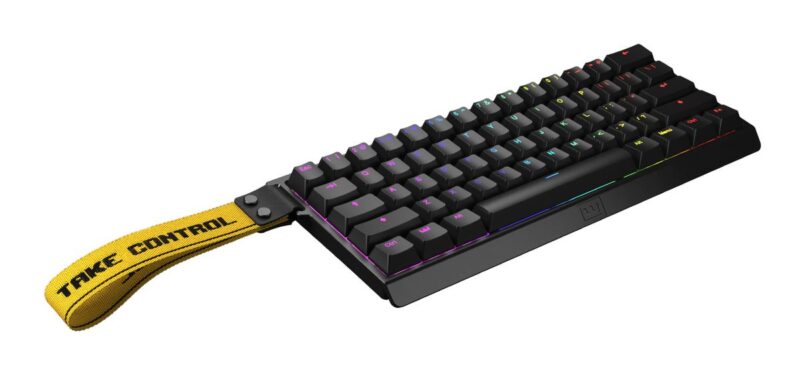Normally, to switch strafe directions in a first-person shooter, you have to fully release one key before pressing the other. If both are pressed, they cancel each other, and you stand there like a dummy for a moment until you release one of the keys. Professional players have mastered not overlapping A and D keys to get perfect counter-strafing and movement in games, but with Razer’s Tap Snap and Wooting’s new Simultaneous Opposing Cardinal Directions (SOCD) beta, you don’t need to release a key and can rapidly tap the A or D key to counter-strafe with little to no effort.
Wooting has also been working on a similar feature called Rappy Snappy, which works a little differently. Rappy Snappy takes advantage of Wooting’s Hall effect switches and prioritizes keys based on how far down they’re pressed, so it’s not the same as the last-pressed priority SOCD feature that Razer has branded as Snap Tap. While Wooting had initially resisted SOCD in favor of its own approach, it’s now offering both options for its keyboards.
Wooting’s implementation of SOCD is actually better than Razer’s, offering different resolutions and the ability to have both keys active at the same time if that feels a little more natural to you.
Snap Tap, or SOCD, is already proving to be controversial among Counter-Strike 2, Valorant, and Overwatch 2 players. “Razer’s new keyboard is basically cheating,” claims YouTuber optimum, who does a great job of explaining how Snap Tap and Wooting’s SOCD beta work. Counter-Strike creator MrMaxim also points out that Snap Tap can even help you achieve longer jumps, and it also helps you pull off “wall bugging” where you hug diagonal walls to prevent fall damage.
“Shouldn’t be allowed,” says professional Counter-strike 2 player ropz in a post on X. “Nice work but this is a bit too much, literally a macro / script, otherwise known as null binds.” PC players have used null binds to prevent you from pressing two opposing directions for years, in scripts that can be loaded into games or macros that can be assigned to keys. Null binding is typically banned in tournaments. Razer’s senior esports ambassador, Jimmy Malavong, was quick to respond to ropz’s concerns, noting that the company had spoken to tournament owners.
The debate around this feature looks set to continue in the weeks ahead, and it may end in games just implementing null binds to let anyone achieve this without having to buy a Razer or Wooting keyboard.
If you’re an owner of a Wooting keyboard you can grab the update that includes Rappy Snappy and this Snap Tap-like SOCD feature through the company’s beta Wootility software.

